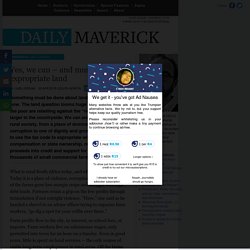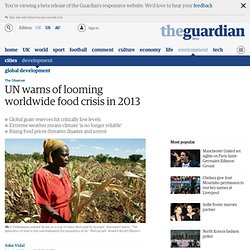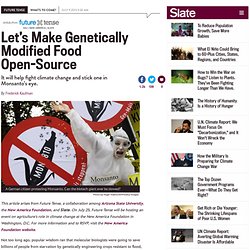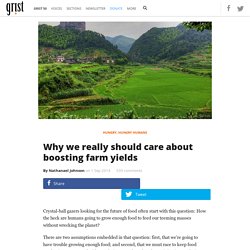

Yes, we can – and must – expropriate land. Something must be done about land.

The question is how. The land question looms huge in the cities, where the poor are rebelling against the “new dawn”. It looms larger in the countryside. We can and must transform rural society, from a place of dominance and corruption to one of dignity and growth. The answer is to use the tax code to expropriate without either compensation or state ownership, recycling the proceeds into credit and support for hundreds of thousands of small commercial farmers. Regenerative Agriculture: Feeding the Future. It is an illusion to think we can continue to use as much energy as we do now. No one can entirely rule-out that some extravagant technology will be forthcoming, e.g. solar power or nuclear fusion on the full-scale of 500 EJ/year as we get through now, but the particular issue of matching liquid fuels derived currently almost entirely from petroleum appears insurmountable.
The "solution" is probably the collective of individual solutions, and that means adopting a completely different paradigm of human philosophy and intention. The most pressing demand is how to feed the population of the world, and how to adapt industrialised conurbations, with cities provided for entirely from external regions for their food and electricity. If oil is the most vulnerable element in the energy-mix as the life-blood of transportation, then we must aim to live with less transportation, and this includes the means and distribution implicit to modern food production.
By. UN warns of looming worldwide food crisis in 2013. World grain reserves are so dangerously low that severe weather in the United States or other food-exporting countries could trigger a major hunger crisis next year, the United Nations has warned.

Failing harvests in the US, Ukraine and other countries this year have eroded reserves to their lowest level since 1974. The US, which has experienced record heatwaves and droughts in 2012, now holds in reserve a historically low 6.5% of the maize that it expects to consume in the next year, says the UN. "We've not been producing as much as we are consuming. That is why stocks are being run down. Supplies are now very tight across the world and reserves are at a very low level, leaving no room for unexpected events next year," said Abdolreza Abbassian, a senior economist with the UN Food and Agriculture Organisation (FAO).
Prices of main food crops such as wheat and maize are now close to those that sparked riots in 25 countries in 2008. "Food shortages undermined earlier civilisations. Farmer To Farmer: The Truth About GMO Crops (Documentary) Open-source GMOs to fight climate change and take down Monsanto. Photo by Nigel Treblin/AFP/Getty Images This article arises from Future Tense, a collaboration among Arizona State University, the New America Foundation, and Slate.

On July 25, Future Tense will be hosting an event on agriculture’s role in climate change at the New America Foundation in Washington, D.C. For more information and to RSVP, visit the New America Foundation website. Not too long ago, popular wisdom ran that molecular biologists were going to save billions of people from starvation by genetically engineering crops resistant to flood, freeze, and drought; crops that could blossom from desiccated soil and bloom in salty sand; crops that could flourish despite an atmosphere saturated with carbon dioxide and rays of sunshine riddled with radiation.
A waterless seed was the next killer app. Of course, the party-line foodie dare not say anything positive about GMOs, at risk of being labeled a stooge of the foodopolists. Only Organics Can Feed the Hungry World: Here's Why. Students working on UGA's organic demonstration farm in summer 2012. (Photo: UGA College of Ag)A new approach to agriculture that combines the best in industrial production with organic and sustainable practices is the key to meeting the changing needs of a changing world, where resources are rapidly depleted by a growing population.
"Are Organic Foods Safer or Healthier Than Conventional Alternatives? " is the title of a controversial report released last week by Stanford University's Center For Health Policy. The study concludes that there is "little evidence of health benefit" from eating organic food. " The meta-analysis of more than 200 separate studies found that organic products were no more nutritious - based on vitamin and mineral content - than conventionally-grown meats and vegetables.
The press weighed in with a bewildering range of instant reactions. "When I started out farming," he told me, "it was like showing up at an assembly line day in and day out. Landshare - connecting growers to people with land to share. The Agricultural Revolution: Crash Course World History #1. Why we really should care about boosting farm yields. Crystal-ball gazers looking for the future of food often start with this question: How the heck are humans going to grow enough food to feed our teeming masses without wrecking the planet?

There are two assumptions embedded in that question: first, that we’re going to have trouble growing enough food; and second, that we must race to keep food production up to speed with population growth, rather than reining in population growth. In questioning those assumptions over the last two weeks, my focus has shifted. If we want to prevent famine and ecological collapse, we should be thinking primarily about poverty, not food. However, looking for ways to deal with poverty takes us right back around to increasing food production. If we fail to deal with poverty and hunger, Joel Cohen told me, we are (counterintuitively) consigning ourselves to explosive population growth.